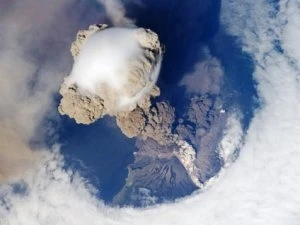 A workshop in northern Nam Dinh province discusses measures to eliminate chemicals harmful to ozone (Photo: VNA)
A workshop in northern Nam Dinh province discusses measures to eliminate chemicals harmful to ozone (Photo: VNA) Vietnam has significantly reduced its consumption of three ozone-depleting substances – Chlorofluorocarbons (CFCs), Hydro-chlorofluorocarbons (HCFCs) and Halon – since joining the Montreal Protocol on Substances that Deplete the Ozone Layer in January 1994.
Some 3.6 tonnes of CFC-11 in the textile industry, 5.8 tonnes of CFC-12 automotive air-conditioning and 40 tonnes of CFC in residential and commercial air-conditioning have been cut down annually, announced the Ministry of Environment and Natural Resources on the occasion of the International Day for the Preservation of the Ozone Layer (September 16).
The ministry banned the import of CFCs on January 1, 2010 and plans to stop HCFCs consumption in Vietnam by 2030.
The Montreal Protocol on Substances that Deplete the Ozone Layer is an international treaty designed to protect the ozone layer by phasing out the production of a number of substances believed to be responsible for ozone depletion.
It came into force on January 1989 and has been ratified by 197 parties, including 196 states and the European Union, making them one of the first universally ratified treaties in the United Nation’s history.-VNA





















